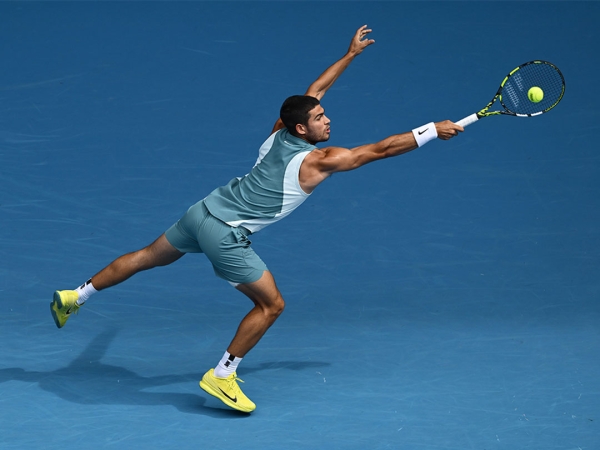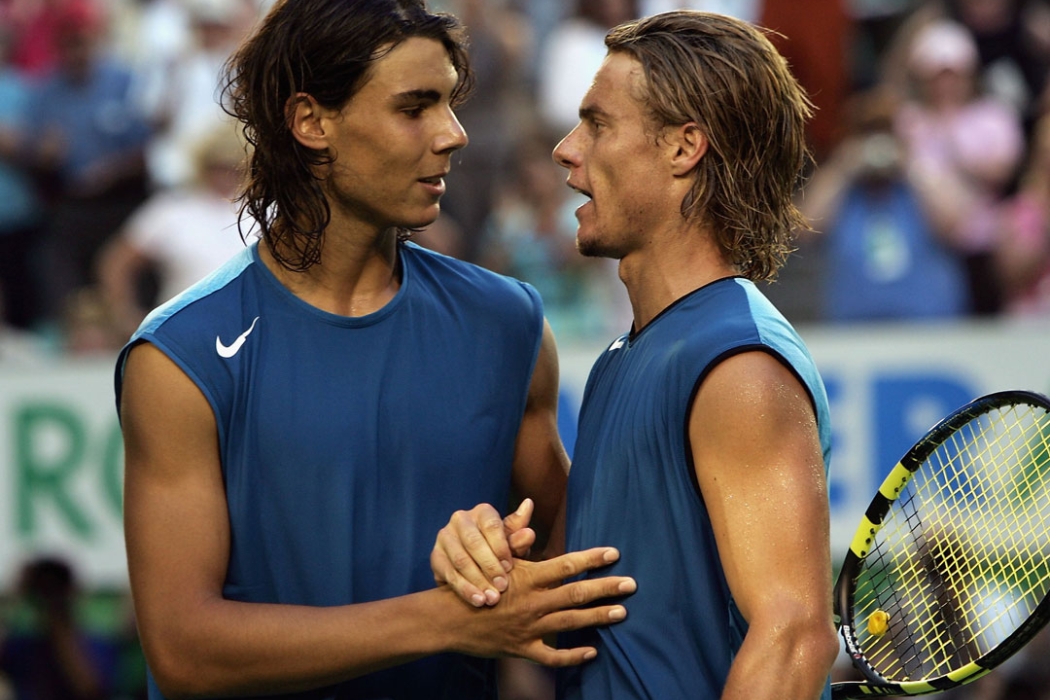“It’s basically gonna be the unofficial AO final.” That’s how one fan has described Tuesday night’s quarterfinal between Novak Djokovic and Carlos Alcaraz.
Neither man needs introduction or any more impetus ahead of the match that will pitch experience against youth.
Not since the 1989 US Open quarters with Jimmy Connors and Andre Agassi has there been a bigger age gap between rivals at a men’s Grand Slam – 15 years and 349 days, to be precise.
MORE: AO 2025 men's singles draw
Statesman Djokovic, 37, is chasing his 11th Australian Open title and record-extending 25th Grand Slam in a landscape that is quickly changing.
Alcaraz exudes energy and boyish confidence. At just 21, he’s looking to claim the only major currently missing from his CV.
“This is not the right player to play in a quarterfinal,” Alcaraz quipped after advancing when Jack Draper retired from their fourth-round clash at Rod Laver Arena on Sunday.
Team Experience at Melbourne Park is small, but exclusive. Djokovic and Gael Monfils, 38, are the only two players aged over 30 remaining in the men’s singles tournament. Twenty-somethings and talented teenagers with power serves have been the talk so far, the sport seemingly becoming more and more preoccupied with finding its next ‘Big Three’.
There appears to have been a shift in the locker room, too, according to Alexander Bublik at least.
The Kazak made headlines in the run-up to the first major of the season with his sentiment about the so-called old guard, including British champion turned Djokovic’s coach Andy Murray and the recently-retired Rafael Nadal. “People have achieved everything, even we tennis players looked at them with our mouths open in the locker room – and then you see one of them bald and old.”
Australian tennis commentator Garry Wilkinson, when asked about Bublik’s comments and how much age and experience counted for in today’s game, had a simple response.
“When it comes to winning and losing, which side of the ledger is he [Bublik] on? No disrespect,” Wilkinson said. “You’ve got to include Djokovic in the equation.”
And many people have. Djokovic was yet to play fourth-round opponent Jiri Lehecka when Alcaraz fronted the press following his match with Draper on Sunday, but nearly all the questions from journalists pertained to a potential quarterfinal between the famous pair.
“I think he's the player who has the most quarterfinals in a Grand Slam in history, if I'm not wrong,” Alcaraz said.
“Obviously he has experience but when we are seeing him playing, he seems like he's young again, so it's unbelievable. He's in a really good shape.
“In a quarterfinal, I've been in this position a few times already so I don’t know how the experience, or getting more experience in that situation, it’s important, but I don’t think it’s going to take advantage on it. I’m just ready and I know what I have to do in quarterfinals.”
Djokovic isn’t the only player Alcaraz has weighed in on during the tournament. Reporters have asked him to comment on a bunch of rising stars including Brazilian compatriot Joao Fonseca, before the 18-year-old bowed out, Jakub Mensik and Learner Tien. Defining what ‘youth’ is in tennis is getting trickier.
“They have a lot of potential. I mean, I'm talking like I'm 30 years old. I'm just two years older than them,” he quipped. “What advice? Not beat me, I guess.”
In Alcaraz, Djokovic has a dangerous opponent who is not one but both sides of the coin – young and experienced – as victories at the US Open, Roland Garros, and two Wimbledon titles attest.
Australian Alex de Minaur, who remains in contention for his career-first Grand Slam triumph, attributes experience to his rise into the top 10.
“For me now, I've been in this position, I know what I need to do. I know that the early rounds, it's all about getting through no matter how. Whether it's pretty, whether it's not, whether you're playing amazing tennis, or can't find the court,” De Minaur said.
“Ultimately the only thing that counts is getting over the line and winning that last point. If you can do your best to conserve energy and not play long matches, then that's going to be very nice to you and your body as the tournament goes along. That's been my main focus – get in, do what I need to do, get out if I can.”
However, the 25-year-old also concurs with the likes of world No.4 Taylor Fritz, who Monfils sent packing, that the power of youth is playing without fear.
“You have the experienced player who has been there, knows what to do in probably key moments. Then you've got the new player, he's full of energy,” he said.
Alcaraz admits at the beginning of his meteoric rise the stature of his rivals was of no consequence to him. “I didn't know about those things, you know, about which player just won a Grand Slam, or the youngest No. 1. I didn't know those stats,” he said.
“I didn't want to think about it. I'm pretty sure the young people are not thinking about it.”
That’s obviously since changed. He’s now one of the hunted, as opposed to the hunter, and ahead of the quarterfinals knows Djokovic’s stats.

Djokovic’s experience has shown as much off the court as it has on the court at the Australian Open so far. He’s played the entertainer, commandeering the end of one of Alexander Zverev’s press conferences, asking the German about his love for space exploration, gaining the most authentic insight from an otherwise rehearsed script. He’s also managed sensationalist local press with professionalism and allowed it not to affect his mindset, or clearly, game. That is a skill.
He's open about doing his homework on rivals, although Murray has declined interviews with the press at Melbourne Park, making hard to know what they’ve learned about the world No.3.
“I would say you get a sense of how your opponent is feeling already before the match, before you enter the court, in the gym or locker room,” Djokovic said.
“We can't run away from each other as we are sharing locker rooms and gym spaces, warm-up area. We do see each other, our respective teams. There's a battle already that starts, before we step out on the court.”
Statistically, it’s also a tough call. Djokovic’s win-loss record at Grand Slams as a 30-something, from quarters onwards against rivals under 22 years of age, is 6-2. Both of those losses, however, were to Alcaraz.
“We had some long battles,” Djokovic said. “[They] remind me of my match-ups versus Nadal in terms of the intensity and the energy on the court. He's very dynamic, explosive player. Incredibly talented. Charismatic player.
“I'm excited about that challenge.”
Part of Djokovic’s experience has been in facing new rivals and matching their game style. As Alcaraz said, he still plays young.
“I've had plenty of matches in my career, particularly in the last five, seven, eight years, where I'll play opponents that I've never faced before, centre court, maybe their first-ever centre court match in any Grand Slam, and they just come out firing,” Djokovic said.
“It's always tricky to mentally to sustain that level. I feed off that energy and just, like, play their lights-out tennis.”
Maybe Djokovic v Alcaraz will not a battle of youth versus experience, or the young versus the young at heart. Maybe this quarterfinal will simply be a matter of last man standing.



